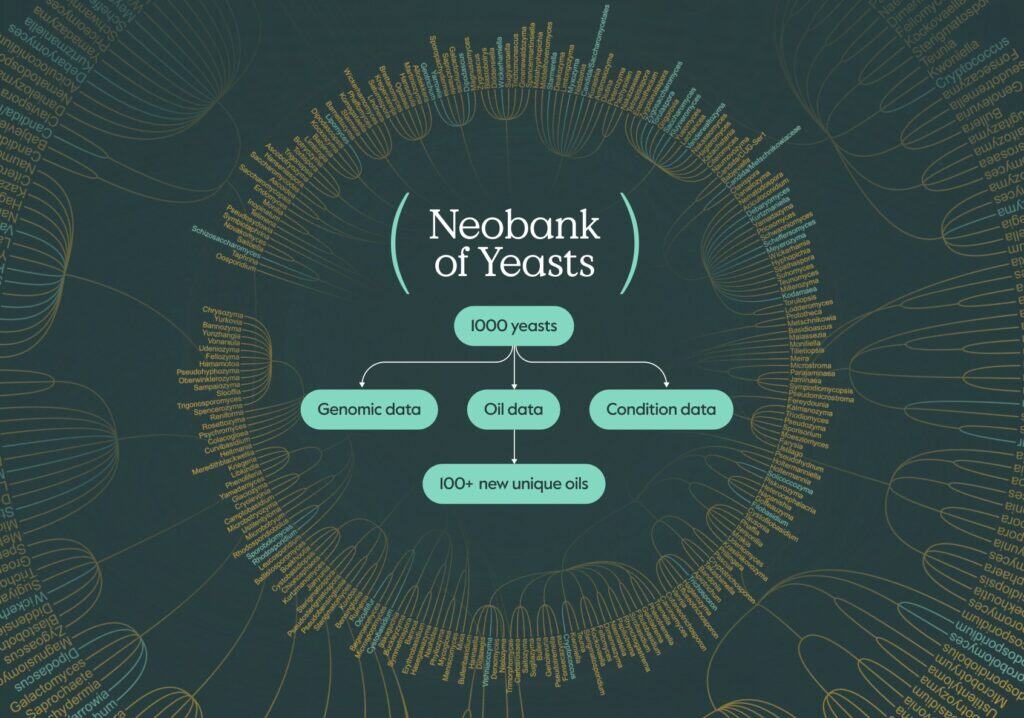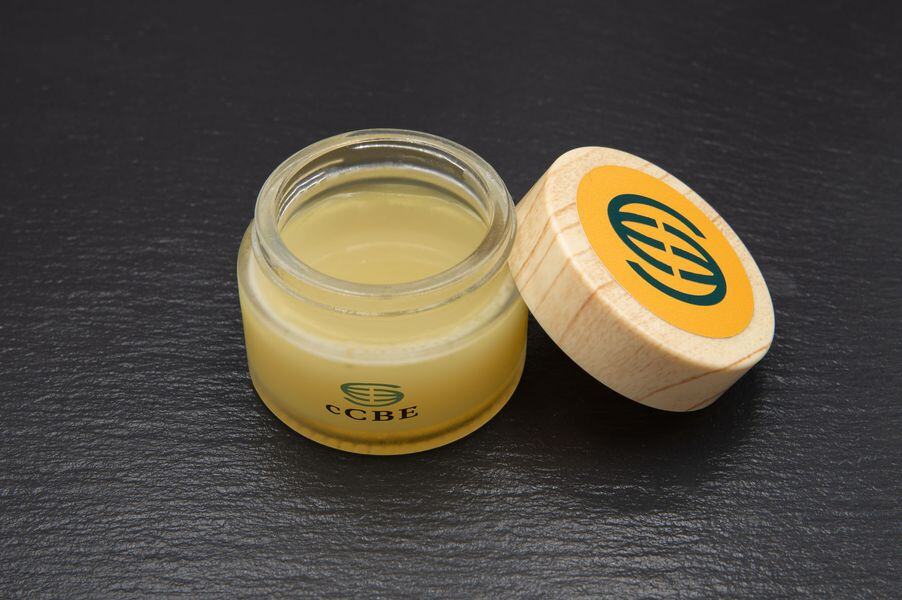Viktor Sartakov-Korzhov is a food industry entrepreneur and techbio innovator with over a decade of experience in industrial food production and fermentation technologies. In 2021, he founded SMEY, a company pioneering sustainable cultivated oils through precision fermentation and AI. Viktor’s mission is to create resilient, sustainable alternatives for the food, beauty, and industrial sectors, reshaping ingredient sourcing and supply chains.
In this exclusive interview, Viktor discusses how SMEY is revolutionizing the cultivation of oils, its role in addressing climate and supply chain challenges, and the potential of precision fermentation and AI in reshaping the future of food and industrial ingredients.
Can you tell us about SMEY and what inspired you to start the company?
SMEY is an AI-enabled biotech company pioneering a new generation of cultivated oils and fats through precision fermentation. Headquartered in Paris and with our R&D hub in Munich, SMEY offers scalable, climate-resilient alternatives to volatile, environmentally damaging tropical oils like palm, shea and cocoa butter.
Before founding SMEY, I gained extensive experience in industrial food manufacturing and strategic management. Here, I learned more about the fragility and limitations of traditional agriculture, especially regarding essential fats like palm and cocoa butter. This drove me to explore innovative methods for producing sustainable fats and oils. At SMEY, we develop cultivated oils through microbial fermentation and AI-driven technologies, creating sustainable and reliable oil alternatives for the food, cosmetics, lubricants, and pharmaceutical industries.
I was compelled to build a company that could reliably produce high‑quality, traceable fats at scale, without relying on deforestation‑prone, climate‑vulnerable systems. By partnering cutting‑edge AI with precision fermentation, we grow oils from yeast — not from fields. SMEY’s mission is born out of both industrial firsthand insights and a vision for more resilient supply chains.
How does the legacy of Alexander Nesmeyanov influence SMEY’s approach to biotechnology today?
Alexander Nesmeyanov’s “Food of the Future” vision laid out a radical idea for his time: that food could be synthesized, not grown — produced through chemistry and biology rather than agriculture. Nesmeyanov believed that essential nutrients and ingredients could be cultivated outside traditional systems — not in soil, but in reactors. That’s precisely what we’re doing with oils and fats. Instead of extracting them from land-intensive, deforestation-linked crops like cocoa or palm, we cultivate these ingredients from microorganisms like yeast, using precision fermentation and AI-guided strain selection.
We’ve even gone one step further. Besides producing existing oils, we discover and scale entirely new lipid profiles. Through our Neobank of Yeasts (NOY) and the SMEY.AI platform, we’ve created a system that mirrors Nesmeyanov’s vision — only now, it is not theoretical. It’s actionable, scalable, and commercially viable.
In short, his legacy isn’t just a philosophical reference point for us — it’s a blueprint. Where Nesmeyanov foresaw synthetic food systems, we are building them — from the molecule up, with nature and computation working together.

How do cultivated oils help food brands tackle climate and supply chain challenges?
Today’s supply chains for key fats — especially those of palm and cocoa butter — are being increasingly disrupted by climate volatility, price swings, and deforestation-driven regulation like the EU Deforestation Regulation (EUDR).
Our cultivated cocoa butter (cCB) and cultivated high oleic butter (cHOB) provide stability in every sense: chemically (they resist oxidation), geographically (they’re made locally in Europe), and economically (they’re not subject to tropical crop failures). Plus, they align with ESG reporting needs and enable brands to claim full traceability.Replacing even 10 grams of traditional fats daily with oils like ours — rich in monounsaturated fats — can reduce the risk of cardiovascular disease and lower mortality. This is not just a sustainability story. It is a health and resilience story, too.
How does your “Neobank of Yeasts” work, and why is it crucial for scalability?
The Neobank of Yeasts (NOY) is SMEY’s central innovation — a hybrid physical and digital library of over 1,000 yeast strains, developed to fundamentally transform how oils are sourced and scaled. Each strain is mapped for its natural lipid production profile. Instead of engineering yeast to mimic a desired fat — a process that can take years — NOY allows us to select strains that already produce the right composition, naturally and efficiently.
What makes NOY scalable is its integration with SMEY.AI, our proprietary AI platform that models genomic, metabolic, and fermentation data to predict yield, fatty acid profiles, stability, and texture. For example, we’ve used NOY to identify strains that produce lipids with 35% stearic acid, which is essential for our cultivated cocoa butter (cCB), as well as others that yield high-oleic, semi-solid fats for cosmetics and clean-label food applications. This dramatically reduces R&D timelines: what once took 18–24 months of trial-and-error or genetic editing can now be done in just 30 days. That speed is critical in today’s market, where brands are under pressure to eliminate deforestation-linked oils and adapt to EU regulations like the EUDR.
What challenges have you encountered in scaling cultivated oils, and how have you overcome them?
The primary challenges lie in two areas: regulatory timelines and perception.
- Regulatory timelines: EFSA’s evolving framework for novel foods means long approval cycles. Our early focus on clean-label compliance and local EU production helps navigate this, as our cultivated oils are designed to meet EUDR and novel food criteria from day one.
- Perception: Cultivated fats are still new to the market. To overcome hesitancy, we co-develop with partners under an NDA and build trust through performance, not hype. Our sensory and stability data speak for themselves.

How does cultivated cocoa butter (cCB) go beyond just the chocolate industry, and what makes cCB such a key product in demonstrating the potential of cultivated fats?
cCB is one of our strategic flagship products. Yes, it’s a cocoa butter alternative, but it’s also a symbol of what cultivated fats can achieve. Cocoa butter is one of the most functionally demanding ingredients: it must melt at body temperature, crystallize predictably, and deliver a specific texture and aroma. If you can match that, you can do almost anything in fats.
Beyond chocolate, cCB works in:
- Plant-based desserts and coatings (where traditional CBEs fail)
- Cosmetics as a moisturizing base oil
- Pharmaceuticals, where crystallization control is crucial
Plus, it’s non-tropical, local, and EUDR-compliant — a game-changer for brands under ESG scrutiny.cCB proves that cultivated fats aren’t just ethical, they’re functionally superior and commercially viable.
Can you share any examples of how companies have successfully integrated SMEY’s cultivated oils into their products?
While we’re under NDA with most of our partners, I can share that B2B clients across the cosmetics, oleochemicals, and food industries are actively engaged. Several large players have signed pre-commercial contracts for pilot testing.
For example, confectionery R&D teams are testing cCB in molded chocolates and fillings, while cosmetics partners are exploring cHOB in lip balms and moisturizers due to its silky texture and oxidation resistance.We’ve also seen interest from lubricant producers who value cHOB’s thermal stability and biodegradability.
What’s next for clean fat innovation? Are there other types of cultivated fats that SMEY is developing for new market opportunities?
Yes, our roadmap goes far beyond cCB and cHOB. We’re currently developing:
- cHPO (Cultivated High Palmitic Oil): 90% bioidentical to palm oil, solid at room temp, ideal for cosmetics and confectionery.
- Custom oil blends: using NOY and AI to engineer oils with tailored fatty acid profiles for specific applications like SPF creams or baking fats.
- Biolubricants: precision oils that outperform petrochemical lubricants in viscosity and biodegradability.
Looking forward, we’re also exploring pharmaceutical excipients and engineered fats for clinical nutrition. As demand for climate-smart, traceable ingredients grows, SMEY’s cultivated fats will be the building blocks of cleaner, more resilient supply chains across industries.








